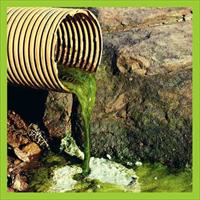KENYA: Cholera outbreaks blamed on contaminated water

Recurrent outbreaks of cholera in the western province of Nyanza are caused by widespread water contamination, including seepage from latrines, health officials said.
"The major contributor to the recent outbreaks in the area was unsafe water," Shahnaaz Sharif, the senior deputy director of medical services in Kenya's health ministry, said. "In Kisumu, many wells are built near the latrine; eventually the sewage seeps into the wells."
The high water table in the area was a contributing factor, Sharif said. Tests done on water samples from Kisumu and Nyando, two of the most affected districts in the province, indicated that 75 percent of sources were contaminated.
"People need to be made aware of water safety, by fetching their water from a safe source and boiling it," Moses Atuko, the emergency health manager at the Kenya Red Cross Society (KRCS) said. At least 80 percent of cholera transmissions are attributed to a lack of access to safe water.
"Sanitation is health; you have poor sanitation you have poor health," Atuko said.
In addition to encouraging the proper use of latrines, there was a need to increase the number of latrines in households, not only for hygiene but also for cultural reasons, as local customs did not allow men and women to share toilet facilities, he added.
The KRCS, in partnership with the Ministry of Health and other NGOs, was sensitising people in the affected areas to the importance of good sanitation and discouraging practices such as bathing and washing clothes in the rivers.
According to Atuko, this "was a tall order", since many people in the region used Lake Victoria and the rivers as their main sources of water.
However, he added, the number of cholera cases had fallen. "Last week, we only reported four cases; four weeks ago, there were more than 100 cases," he said.
The health ministry is enforcing public health laws by discouraging hawking of food in open markets and streets. It also conducted mapping of water sources for chlorination and was promoting the use of water purifiers.
"We have to enforce proper eating standards," Sharif said. "We are discouraging roadside cooking."
According to the World Health Organization (WHO), inadequate food safety and hygiene are also major contributors to the sporadic outbreaks of the disease.
Cholera is caused by the bacterium Vibrio cholerae and is characterised by watery diarrhoea, vomiting, muscle cramps and severe dehydration. Treatment is mainly by rehydration and up to 80 percent of cholera cases can be treated successfully using oral rehydration salts.
 Back and Next - Back and Next
Back and Next - Back and Next See Also - See Also
See Also - See Also